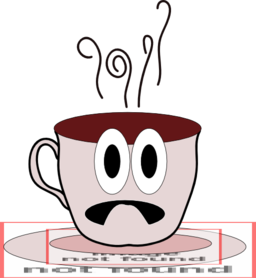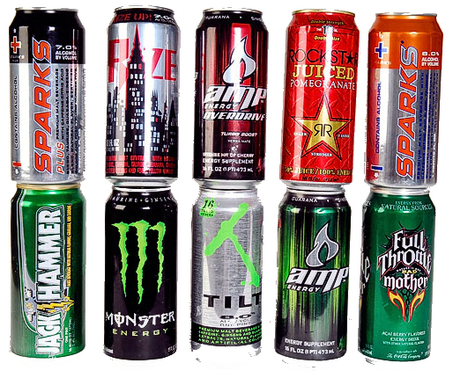Mornings are the worst. Waking up all tired knowing that you have to roll out of bed to go to work or school. It sucks. You’re moping around your home like a zombie throwing on clothes and dragging yourself out the door. However, you just have to have your typical cup of coffee in the morning to hype you up and get you wide awake for your day! Wait, a drink that can wake you up? Is this amazing or just flat out unhealthy?
Coffee is made from coffee beans that expand when exposed to humid climates at altitudes over 6,000 feet above sea level(All 1). Also, coffee is the second most traded item in the world, behind oil(All 1). How important! Coffee is usually drank in the morning and it comes in regular and decaf (no caffeine). You can add additives such as milk, cream, or sugar to enhance the taste or flavor of your drink.
 Everyone’s initial thought is that coffee is bad for you. Coffee is known for being very sugary once adding sugar and it also stains your teeth. It can get you on a sugar high if you drink too much of it as well. However, the worst part is that you can easily get addicted to coffee, almost acting like a drug. I was reading an article where the author was stating how “At times I’d quit coffee for up to a month but then eventually I’d come crawling back to it (normally triggered and lured back in by the sight and smell of it whilst catching up with friends)” and also stating, “I literally tried so many times to quit coffee during this time; I tried to tell myself that I didn’t have an addiction and that I deserved these 1-2 coffees a day”(Coffee 1). It is quotes like those which make coffee seem like heroin or crack. It is crazy to here how a person can rely so much on a hot beverage. The most unhealthy part about coffee is the caffeine. Caffeine is a stimulate of the neurotransmitter serotonin, a hormone in our brain which controls sleeping(Coffee 1). When our body depends on this hormone too much, it “impacts on the body’s natural ability to regulate healthy serotonin production”(Coffee 1). This leads to the random and sudden highs and lows after drinking coffee(Coffee 1). So, isn’t it clear that coffee is awful for you?
Everyone’s initial thought is that coffee is bad for you. Coffee is known for being very sugary once adding sugar and it also stains your teeth. It can get you on a sugar high if you drink too much of it as well. However, the worst part is that you can easily get addicted to coffee, almost acting like a drug. I was reading an article where the author was stating how “At times I’d quit coffee for up to a month but then eventually I’d come crawling back to it (normally triggered and lured back in by the sight and smell of it whilst catching up with friends)” and also stating, “I literally tried so many times to quit coffee during this time; I tried to tell myself that I didn’t have an addiction and that I deserved these 1-2 coffees a day”(Coffee 1). It is quotes like those which make coffee seem like heroin or crack. It is crazy to here how a person can rely so much on a hot beverage. The most unhealthy part about coffee is the caffeine. Caffeine is a stimulate of the neurotransmitter serotonin, a hormone in our brain which controls sleeping(Coffee 1). When our body depends on this hormone too much, it “impacts on the body’s natural ability to regulate healthy serotonin production”(Coffee 1). This leads to the random and sudden highs and lows after drinking coffee(Coffee 1). So, isn’t it clear that coffee is awful for you?
 On the other hand, coffee could be considered good for you. Studies have shown that coffee improves mood and brain function because the caffeine blocks an inhibitory neurotransmitter inside of the brain, which starts a net stimulant effect(Gunnar 1). Also, coffee raises a person’s metabolism which mobilizes fatty acids from fat tissues; in the long run, it burns fat and improves ones physical performance(Gunnar 1). Another shocking finding concludes that coffee decreases your risk of receiving Type II Diabetes. There is a indirect correlation which states that the more coffee you drink per day, the less likely you get diabetes(Gunnar 1). Finally, drinking coffee could decrease your risk of receiving Alzheimer and Parkinson Disease(Gunnar 1). So drinking coffee leads to better health in the long run and it can protect your from very serious diseases in the future. So, isn’t it clear that coffee is good for you?
On the other hand, coffee could be considered good for you. Studies have shown that coffee improves mood and brain function because the caffeine blocks an inhibitory neurotransmitter inside of the brain, which starts a net stimulant effect(Gunnar 1). Also, coffee raises a person’s metabolism which mobilizes fatty acids from fat tissues; in the long run, it burns fat and improves ones physical performance(Gunnar 1). Another shocking finding concludes that coffee decreases your risk of receiving Type II Diabetes. There is a indirect correlation which states that the more coffee you drink per day, the less likely you get diabetes(Gunnar 1). Finally, drinking coffee could decrease your risk of receiving Alzheimer and Parkinson Disease(Gunnar 1). So drinking coffee leads to better health in the long run and it can protect your from very serious diseases in the future. So, isn’t it clear that coffee is good for you?
There were a variety of 18 studies done in a huge review article which tested out if coffee actually lowered the risk of diabetes. There were 457.922 participants total in the 18 studies and each of them had to drink coffee every single day(Gunnar 1). The data showed that each additional coffee drank per day, led to a whopping 7% decreases in the risk of diabetes(Gunnar 1). Other studies have proven that four cups of coffee per day would lower the risk of cirrhosis by 80%(Gunnar 1). There are so many different other reasons and studies that show why coffee is good for you. Since there were so many random participants in these studies and so many different types of studies, it is quite obvious that the data is most likely valid. Reverse causation would not work in this case and it is possible that this information could be due to chance, but it is doubtful.
So coffee might be good for you… Thoughts?
Works Cited
“All about Coffee.” Indigo Coffee: What Is Coffee? N.p., n.d. Web. 05 Dec. 2014.
“Coffee: 10 Shocking Reasons Why It’s Soooo Bad For You.” Nurture Pod Health Coaching Yoga In Sydney RSS. N.p., n.d. Web. 05 Dec. 2014.
Gunnars, Kris. “Why Is Coffee Good For You? Here Are 7 Reasons.” Authority Nutrition. N.p., n.d. Web. 04 Dec. 2014.
“Top 10 Most Underrated Health Foods.” Summer Tomato RSS. N.p., n.d. Web. 05 Dec. 2014.




 I suffer from anxiety and depression. These are issues that influence my life on a daily basis, so I am quite attuned to them. I started to notice that sometimes, while I was drinking coffee, I would begin to have those tell-tale feelings of anxiety, and it made me wonder if it was the coffee triggering these attacks. After doing a little research, I found that I am not the only one out there who suffers from this specific problem.
I suffer from anxiety and depression. These are issues that influence my life on a daily basis, so I am quite attuned to them. I started to notice that sometimes, while I was drinking coffee, I would begin to have those tell-tale feelings of anxiety, and it made me wonder if it was the coffee triggering these attacks. After doing a little research, I found that I am not the only one out there who suffers from this specific problem.